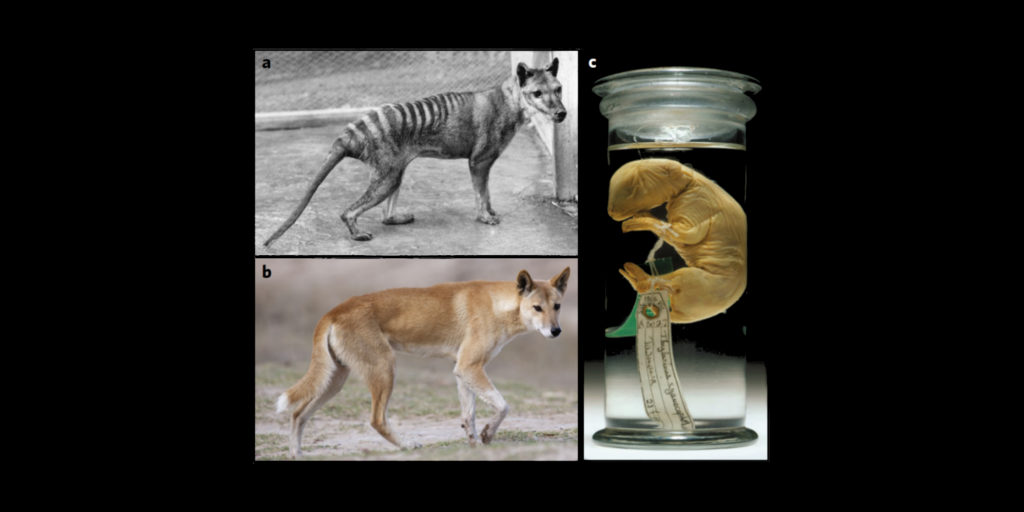Secrets from Beyond Extinction: Unlocking the Thylacine Genome

Associate Professor Andrew Pask
ARC Future Fellow, School of Biosciences, The University of Melbourne
The Tasmanian tiger or thylacine (Thylacinus cynocephalus) was the largest carnivorous Australian marsupial to exist into the modern era. Their resemblance to the eutherian wolf is considered the most striking example of convergent evolution in mammals. This is even more striking when you consider that they last shared a common ancestor over 160 million years ago.
Sadly, the last known thylacine died in captivity in 1936. However, Associate Professor Andrew Pask and his colleagues have sequenced the thylacine genome from a preserved “pouch young” specimen and used it to examine its phylogenetic placement, population life history and the genetic basis of its convergence with the wolf. Their findings have shed light on the biology of this unique, marsupial apex predator, and the mechanisms of its evolution, development and burden of disease.
About the Speaker:
 Dr Andrew Pask is an Associate Professor and Reader and ARC Future Fellow in the School of BioSciences at the University of Melbourne. His research focuses on defining key genes directing phenotypic development in mammals. He sequenced the genome of the platypus, tammar wallaby, thylacine and most recently the dunnart. His work on the thylacine examined the biology of this unique extinct species. He currently establishing stem cells from marsupials to understand more about totipotent and pluripotent states in mammals and to provide the reagents necessary for species conservation. His work in marsupials has greatly increased our understanding of the biology of our unique fauna and shed light on many critical developmental events across all mammals, including proving important insights into the aetiology of human reproductive diseases.
Dr Andrew Pask is an Associate Professor and Reader and ARC Future Fellow in the School of BioSciences at the University of Melbourne. His research focuses on defining key genes directing phenotypic development in mammals. He sequenced the genome of the platypus, tammar wallaby, thylacine and most recently the dunnart. His work on the thylacine examined the biology of this unique extinct species. He currently establishing stem cells from marsupials to understand more about totipotent and pluripotent states in mammals and to provide the reagents necessary for species conservation. His work in marsupials has greatly increased our understanding of the biology of our unique fauna and shed light on many critical developmental events across all mammals, including proving important insights into the aetiology of human reproductive diseases.
A National Science Week event, presented by the Royal Society of Victoria.







